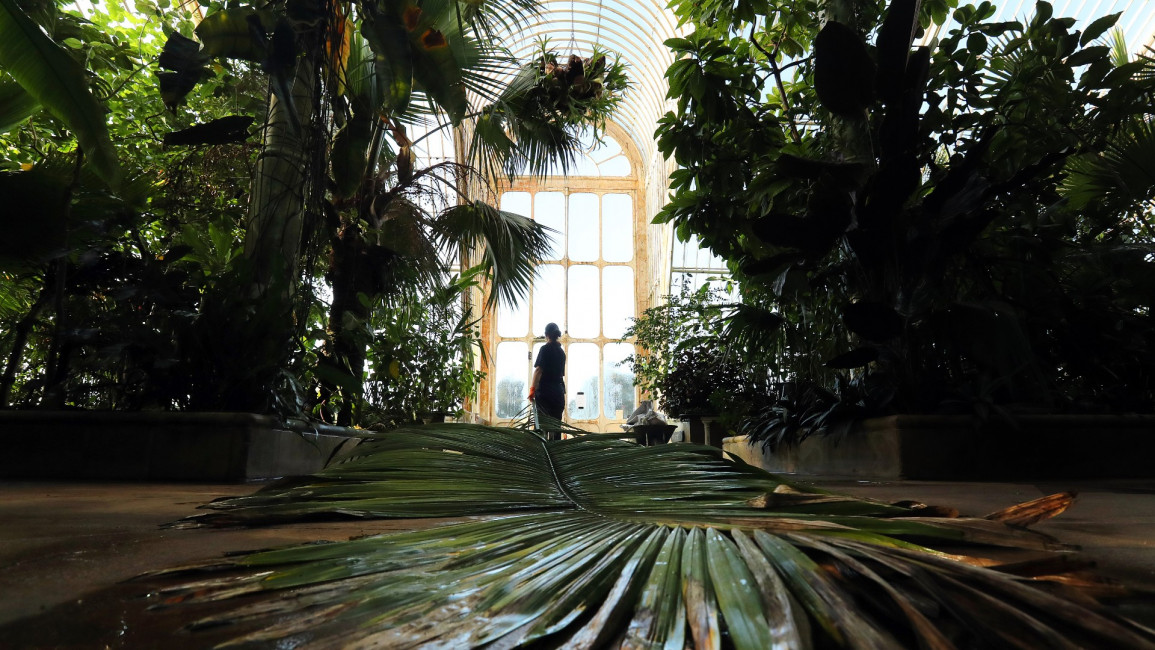
'Decolonising' Kew Gardens isn't woke politics, it's the seed of real progress
In the 36 pages of its new, 10-year Manifesto for Change, Kew outlines its mission, and details ambitious plans to "end the (global) extinction crisis". But one word, in the thousands used has got some people riled. Kew plans to "decolonise" its 350 year old collection and for that, it is being accused of the nebulous crime of being "woke".
I hope that director, Richard Deverell takes this as a compliment; that he and the trustees are awake to issues of social injustice, particularly those of race, as they pertain to the use of public funds.
Originally a private, royal plant collection, it is nearly 300 years since Kew was given to the people. The scientific work at Kew is undertaken for the good of all British people, indeed all peoples worldwide. In 1840 the gardens were opened to the public, but despite this egalitarian intent, it is clear today that availability is not the same as accessibility.
People from black, and minority ethnic backgrounds, and those from financially disadvantaged groups do not visit Kew Gardens in proportionate numbers. The reasons are complex, but partly due to a sense of not being welcome; that "this place is not for me". Some find it difficult to find personal relevance in the garden and may even feel excluded by the wording and the way that material is presented.
 |
As with all histories, our accounts of botany and horticulture have been written by the victors |  |
So, what form will this controversial decolonisation take? Kew plans to: have "honest conversations" about its links to imperialism and colonisation; to change display boards to give further information about the history of its plant collections; to be more academically rigorous in its wording and correct "lazy" errors of the past. I am not really sure what there is to be upset about.
Botany is a scientific discipline and all of the above will serve only to improve the quality of the work at Kew and its ability to disseminate accurate information as widely as possible.
Twitter Post
|
As with all histories, our accounts of botany and horticulture have been written by the victors. The privileged, powerful and wealthy of the past erased the contributions of others and constructed an exclusive gardening culture that persists today. Look at any aspect of the practice, science, display, business, teaching and enjoyment of plants in the UK and US and you will see that black people, brown people and poor people are largely missing.
The question for us now, is "do we want the next 300 years to be the same?" And it's not a rhetorical question, because for some, past social structures and privileges have served them well; why wake up and lose this?
Read more: The royalty was built on the back of empire, of course it's a racist institution
But, for many, as the internet democratises access to information, we see the holes and errors in the telling of our national stories and we want to know the truth. Uncovering previously hidden facts and untold stories will enable a greater understanding of who we are as Britons.
The voluntary and forced contributions of many people to the success of Great Britain has not been acknowledged. Their cultures have been denigrated and their voices have been stifled. Much of Britain's financial and political success is derived from the "discovery" and appropriation of plants, such as potatoes, tea, sugar, and cotton, mainly from people of colour.
Let us not forget that the "triangular trade" of the 16th to 19th centuries involved shipping slaves from Africa to the West Indies, sugar and coffee back to Europe, then arms and wines back to Africa. Fortunes were made, towns were built, gardens were planted.
We now have the legacy of those trades: one of the wealthiest and most powerful countries in the world, with beautiful historic buildings; august academic institutions and a rich cultural heritage. Much of the benefit still remains in the hands of a privileged few, but some are shared, such as the Royal Botanic Gardens Kew. But the legacy is also one of loss, and that needs to be brought into the open and learned from. Our past deep disrespect for other nations resonates to this day.
 |
Black people are missing from horticultural history and it seems we are also largely missing from horticulture today |  |
How can you say that you respect me, if you erased the history of my family? And if you think you have the right to erase my grandmother, will you erase me? Black people are missing from horticultural history and it seems we are also largely missing from horticulture today. Richard Deverell has acknowledged that Kew has much work to do in order to open up opportunities for people from minority groups to work at, and progress through, its institution.
A nation is impoverished if not all of all its people can contribute to its success. If modern black, brown and poor people are to contribute fully to our cultural enrichment, financial success, scientific and political life, they need to be seen. Seen as people with pasts, as well as futures. Black people are here today, will be here tomorrow and we cannot deny that they were also here in the past.
Juliet Sargeant has been designing gardens for 25 years and is a TV and radio garden presenter. She has multiple awards, including a gold medal from the Royal Horticultural Society's Chelsea Flower Show.
She also teaches gardening and design from her Sussex Garden School.
Follow her on Twitter: @julietsargeant Instagram: julietsargeant and Facebook: @sussexgardenschool.
Have questions or comments? Email us at: editorial-english@alaraby.co.uk
Opinions expressed in this article remain those of the author and do not necessarily represent those of The New Arab, its editorial board or staff.



